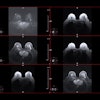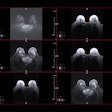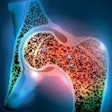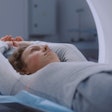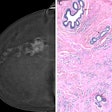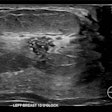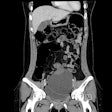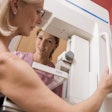Hologic announced that its Genius AI Detection 2.0 breast cancer detection software used in a clinical study of more than 7,500 patients that included Asian, Black, Caucasian, and Hispanic women, conducted by the Northwestern Feinberg School of Medicine in Chicago, generated similar results for all races and ethnicities.
The study, entitled “Performance of a digital breast tomosynthesis AI detection algorithm in common U.S. racial/ethnic groups” was led by Sarah Maier Friedewald, MD, vice chair for women’s imaging. Because AI algorithms can exhibit racial disparities, it is important to evaluate the performance of AI algorithms in racial/ethnic groups for which they will be used clinically.
Friedewald and colleagues evaluated 7,519 consecutively selected digital breast tomosynthesis (DBT) examinations, 2,532 with cancer, using a breast imaging modality that had Hologic’s Genius AI Detection software installed. The cases were selected from a pool of biopsy-proven malignant breast cancer cases and normal cases that were read as BI-RADS 1 or 2 at screening.
The researchers measured AI performance for each cohort using the metrics of receiver operating characteristic (ROC) curves, area under the ROC curve, and location-specific sensitivity. The measured performance was statistically similar for all cohorts, ranging from 88.6% (Black) to 91.5% (Hispanic) for sensitivity, and from 57.6% (Hispanic) to 61.2% (Black) for specificity. AI performance was best for the 4% of Asian women participating in the study, with 95.2% sensitivity and 71.6% specificity.
Hologic also debuted its Genius AI Detection PRO. Its features include a deep-learning 2D and 3D algorithm designed to improve specificity by using a patient’s prior exam in the current exam’s analysis, case and lesion scoring and prepopulated exam reports, and an all-in-one interface that includes deep-learning breast density scoring and key patient and mammogram quality information.




